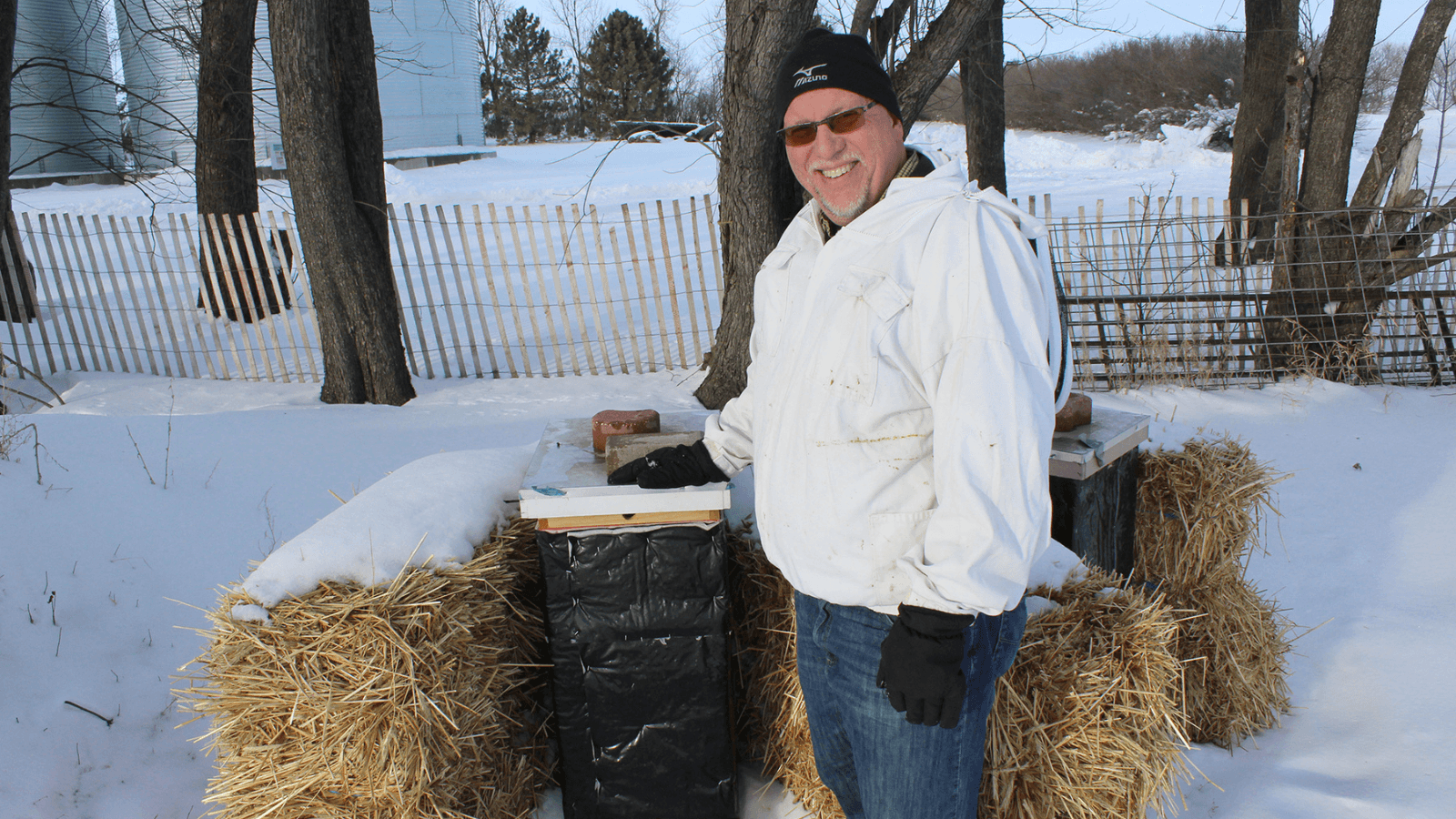
Solomon’s exhortation to the Hebrews gladdens the heart of this beekeeper: “My child, eat honey, for it is good, and the drippings of the honeycomb are sweet to your taste.” (Proverbs 24:13, NRSV). How different could our culture be if we followed another bit of Solomon’s wisdom, “Pleasant words are like a honeycomb, sweetness to the soul and health to the body” (Proverbs 16:24)?
There are many Old Testament references to honey within the context of goodness, abundance, and blessings. God promises the exiled Hebrews an inheritance of a “land flowing with milk and honey” – which is an allegory for a land of abundance, or a land that would provide abundantly for God’s people. The story of Samson and the lion in Judges 14 mentions a swarm of bees and honey.
As a pastor and beekeeper, I’m fascinated by the connection of bees to the Church. During the Middle Ages, monks and nuns were beekeepers. They were interested in making smoke-free beeswax candles. The tradition of clergy keeping bees for the making of candles also continued during the early settlement of the United States.
Two clergy historical beekeepers still influence contemporary beekeeping. Often called “the father of modern beekeeping,” Rev. L.L. Langstroth received a U.S. patent in 1852 for moveable frames within a hive box. My bees are kept in Langstroth hives today. Modern honey bee breeding methods are modeled on the work of Benedictine monk and bee breeder, Brother Adam, who kept bees at the Buckfast Abbey in southwest England. He traveled the world searching for honey bee strains to use in his crossbreeding program, eventually creating the Buckfast bee. The disease-resistant Buckfast bee, while not popular in the U.S., can be found in bee yards in Europe and Canada. Books written by Rev. Langstroth and Brother Adam can be found on my bookshelves next to my other books about creation care.
This upcoming Saturday – which is World Bee Day 2023 – another clergy beekeeper will be influencing fellow beekeepers in northwest Iowa, southwest Minnesota, and eastern South Dakota. The Rev. Phillip Westra, a Christian Reformed minister, will be teaching the craft of honey bee queen grafting and rearing. His teaching will demonstrate a method for regional beekeepers to manage enduring sustainable bee colonies.
World Bee Day is observed annually on May 20th. It spotlights the important roles that God’s remarkable creation of bees and other pollinators contribute to a “land flowing with milk and honey.” The official World Bee Day announcement invites us to “Bee engaged in pollinator-friendly agriculture production.”
We who are eaters and are committed to creation care can contribute to the health and wellbeing of bees as well as that of other essential pollinators. Be(e) aware of the chemicals and fertilizers applied to lawns and landscapes. Avoid insecticides if possible and use organic-based lawn and landscape fertilizers. Consider the integration of native plants and trees into landscapes. Contact your state’s Land Grant College Extension Services for pollinator-friendly plant recommendations. If you are unable to get the information you need, don’t hesitate to contact me at tim@creationcare.org.
Another way to support the health and wellbeing of bees and pollinators is to contact your congressional representatives. Encourage the inclusion of legislation in the 2023 Federal Farm Bill that is conservation-forward and incentivizes the setting aside of appropriate agricultural lands to establish long-term pollinator habitats.
We celebrate World Bee Day this year remembering the words of St. John Chrysostom, “The bee is more honored than other animals not because she labors, but because she labors for others.”
Rev. Tim Olsen, EEN’s Upper Midwest Coordinator, is a beekeeper, and beekeeping educator. He and his wife, Marty manage Laughing Eyes Apiaries located in the farm country of SW Minnesota.

